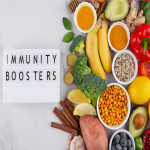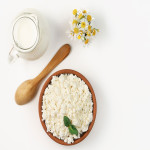What is the best solution for KIDNEY STONES??
What is a kidney stone?
Also known as calculi, nephrolithiasis, or urolithiasis, kidney stones are hard masses made of minerals and salts. They may cause pain, bleeding, infection, or disrupt the flow of urine. Studies show that the likelihood of forming another kidney stone is about 15% within 1 year, 40% within 5 years, and 80% within 10 years.
§ Symptoms
o Intermittent Abdominal pain
o The pain from the flanks to the area between the thighs
o Severe renal colic pain
o Painful urination
o Obstruction in the passage of urine
o Blood in urine
o Nausea & vomiting
o Fever & chills (if an infection is present)
What could be the possible causes?
· Lack of water in the body
· High intake of protein and sodium
· Obesity
· Gastrointestinal diseases
· Any kind of cystic kidney disease
What are the available treatment options?
As of now, no allopathic medicine has been approved to remove kidney stones while the surgical process of kidney stone removal is expensive and painful. Hence, the best alternative left for the masses is an herbal treatment of kidney stones. An herbal preparation based on established scientific research can help dissolve or remove the calculi without any discomfort or side effects. However, the challenge with herbal treatment is that manufacturers make false claims about their products and the expected results. The claims are not onlyexorbitant but even for legit formulations the quality of ingredients is not known.
What are the herbs that provide relief in Kidney stones?
§ Bergenia ligulata (pashanbheda): Its literal meaning is ‘to dissolve the stone’ in Indian systems of medicine. It is mainly used for the treatment of kidney and urinary tract stones because of its antilithic property which prevents the formation of calculi.
§ Hemidesmus indicus (anathmoola): Commonly known as ‘Indian sarsaparilla’ has antiurolithiatic activity which flushes out stones (renal excretion of calcium and phosphate) by increasing urinary output within the kidneys and pharmacologically it is shown to possess antinociceptive, antioxidant and renoprotective properties among others.
§ Tribulus terrestiris (gokhru): It has diuretic, aphrodisiac, and anti urolithic, properties that can help in the treatment of urolithiasis, dysuria, impotence or erectile dysfunction and kidney dysfunction.
§ Didymocarpus pedicellata (shilapushpa):Shilapushpa means a stone flower commonly found in high-altitude forests and the Himalayas. It prevents kidney stones by regulating the calcium absorption in the body. Its diuretic activity helps in the detoxification of the urinary tract.
§ Raphanus sativus (mulika):Commonly known as Radish, it has many properties including diuretic and laxative properties which are efficient in the treatment of kidney stones. Radish also helps regulate the flow of bile and has astringent properties.
§ Lawsonia alba (henna): Popularly known as mehndi has been used in herbal medicine for ages and is also beneficiary in the treatment of kidney stones. It breaks the stone and lets it pass with urine. It has many other properties like antibacterial, antifungal, antiparasitic, antiviral, anticancer, antidiabetic and hepatoprotective.
§ Ficus racemosa (udumbara):Commonly known as the fig tree and gular in India. It has anti-inflammatory and antibacterial activities which help in the treatment of UTIs. Moreover, it is also recognized for its astringent, antidiuretic, anthelmintic and hepatoprotective activities.
§ Boerhavia diffusa (punarnava): Classified as “rasayana” herb possess diuretic property. Decreases calculi size and enhances the rate of dissolution of crystal. It also has antifungal, anti-inflammatory and astringent properties.
§ Crataeva nurvala (varuna): It is an ayurvedic herb whose anti-lithogenic activity and anti-crystallization property prevents stone formation and reduces the recurrence of urolithiasis. It is also beneficial in the treatment of UTIs and prostrate-related issues.
§ Achyranthes aspera (apmarga):Also known as Chirchita and puthkanda helps in the breakdown of renal and urinary bladder stones by decreasing calculi size, and helps in quick expulsion. And maintains normal renal functioning and reduces renal injury.
§ Asphaltum panjabinum (shilajit): It is a thick, sticky tar-like substance that prevents supersaturation of urine thus preventing the recurrence of stones and commonly used in Ayurvedic medicine for its memory and immunity boosting properties and it also acts as an antioxidant.
What are the available Herbal/Ayurvedic treatments/remedies?
Brand Name
Ingredients
No. of ingredients
Price
Time of treatment
Keestone
Ingredients
Quantity per capsule
Bergenia ligulata
100mg
Crataeva nurvala
75 mg
Ficus racemosa
50 mg
Boerhaavia diffusa
50 mg
Tribulus terrestris
30 mg
Lawsonia alba
25 mg
Didymocarpus pedicellata
25 mg
Achyrantes aspera
25 mg
Raphanus sativus
25 mg
Hemidesmus indicus
25 mg
Shilajit
25 mg
11
60 tablets bottles @667
12 days*
Note: The mentioned time may vary from person to person depending on their diet, health history, climate Etc.
Cystone
Ingredients
Quantity per tablet
Shilapuspha (Didymocarpus Pedicellata)
130 Mg
Pasanabheda (Bergenia Ligulata Or Saxifraga Ligulata)
98 Mg
Manjishtha (Rubia Cordifolia)
32 Mg
Nagarmotha ( Cyperus Scariosus)
32 Mg
Apamarga (Achyranthes Aspera)
32 Mg
Gojiha ( Onosma Bracteatum)
32 Mg
Sahadevi ( Vernonia Cinerea)
32 Mg
Hajrul Yahood Bhasma ( Lime Silicate Calx)
32 Mg
26 Mg
9
60 tablets bottle @210
Distone
Ingredients
Quantity per tablet
Shilapuspha (Didymocarpus Pedicellata)
130 Mg
Pasanabheda (Bergenia Ligulata Or Saxifraga Ligulata)
98 Mg
Manjishtha (Rubia Cordifolia)
32 Mg
Nagarmotha ( Cyperus Scariosus)
32 Mg
Apamarga (Achyranthes Aspera)
32 Mg
Gojiha ( Onosma Bracteatum)
32 Mg
Sahadevi ( Vernonia Cinerea)
32 Mg
Hajrul Yahood Bhasma ( Lime Silicate Calx)
32 Mg
26 Mg
6
24 capsules pack @237
Disocal
Ingredients
Quantity per tablet
Garcinia
150 Mg
Baswellia serrita
100 Mg
Triollus terresteris
150 Mg
Berginia ligulata
50 Mg
Apamarga (Achyranthes Aspera)
50 Mg
5
60 tablets bottle @850
Neeri
Ingredients
Quantity per tablet
Pashanbhed (Bergenia ligulata)
60 mg
Palash Pushap (Butea monosperma)
50 mg
Swait Parpati (AFI-II) (Classical Ay. Preparation)
25 mg
Appamarg Panchang (Achyranthes aspera)
20 mg
Varun Ext. (Crataeva nurvala Conc.)
20 mg
Sudh Shilajeet (RTS-1) (Purified Asphaltum)
15 mg
Punernava (Boerhaavia diffus, Rt.)
50 mg
Hajrul Yahood Bhasma (RTS-1)
45 mg
Sahdev (Vernonia cinerea)
20 mg
Gokhru (Tribulus terrestris, Fr.)
20 mg
Lajaloo Mool (Mimosa pudica)
15 mg
Yavakshar (AFI-i) (L. ash of Hordeum vulgare)
10 mg
12
30 tablets leaf @206
The information in the given data may vary a little from the actual data.
Which is the best alternative from the listed alternatives/remedies?
KeeStone is a blend of 11 scientifically proven herbs that are approved to be suitable for the removal of kidney stones without any side effects. These herbs not only remove the kidney stone but also prevent its recurrence, maintain kidney health and provide renal protection. Moreover, these herbs have many other benefits like anti-inflammatory, antifungal, antibacterial, antiviral, and antioxidant activities and help in diseases like Diabetes, Urinary Tract Infections, liver-related diseases, and heart and mind-related issues. The ingredients used in the production of KeeStone, are of the best quality and used in the best-suited quantity in the surveillance of medical specialists. KeePharma has always tried to provide the best solution at reasonable costs and this is another step towards the same.



